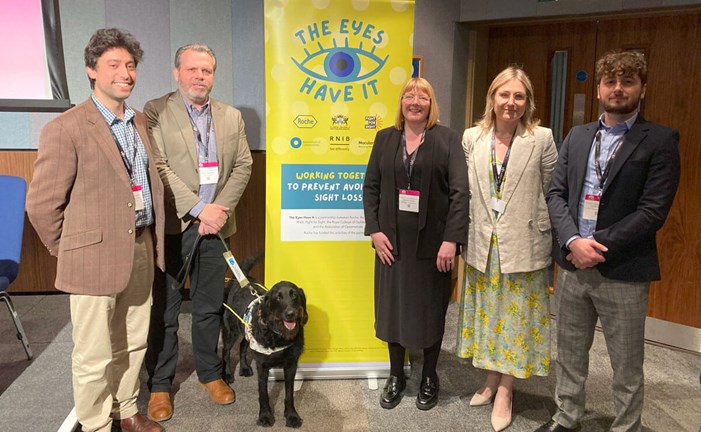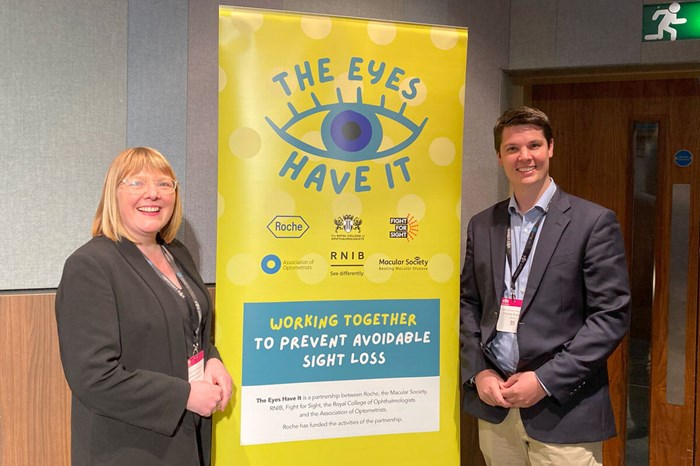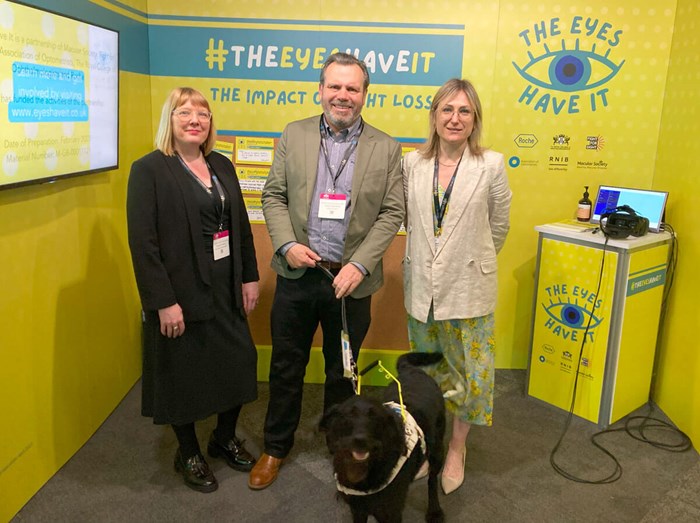8 Centenary Square,
Birmingham,
B1 2EA
by Carolyn Ruston
Alone we can do so little, together we can do so much.
This quote, attributed to Helen Keller, feels to me like a fair summary of the prospects for transformation in the eyecare sector in England.
Recently, I joined thousands of ophthalmologists and other eyecare professionals in Birmingham for The Royal College of Ophthalmologists Annual Congress. I was proud to attend this event as a representative of the Association of Optometrists, because we all know that to deliver the best care for patients, we need to break down the artificial boundaries within the eyecare sector.

Breaking down such boundaries is also a central pillar in the eyecare transformation activity which Louisa Wickham, National Clinical Director for Eye Care, is leading. Louisa outlined this activity at the Congress as part of a panel session entitled Nationally coordinated eye care: How do we deliver the improvements that matter most?, hosted by The Eyes Have It (a partnership of The Royal College of Ophthalmologists, Association of Optometrists, Macular Society, Fight for Sight/Vision Foundation, RNIB and Roche). Chaired by Keith Valentine, Fight for Sight/Visionary CEO, the panel also included Ben Burton, President-elect of The Royal College of Ophthalmologists and Thom Renwick, Ophthalmology Therapy Area (Squad) Lead for Roche UK.

Addressing around 60 delegates at the Congress, Louisa detailed a new, end-to-end pathway for macular degeneration implemented in North Central London ICS. This new model focuses on what a patient experiences at different stages of the pathway, from entering the system, via triage and diagnosis to clinical review, treatment and ongoing monitoring. What these stages entail and where they take place varies depending on patient needs and choices, and the whole pathway is underpinned by patient support and education, ensuring patients have the information they need at what can be a very stressful time.
This model is reducing waiting times, improving the efficiency of care and delivering high rates of satisfaction. But if it is to expand successfully to other sub-specialties in North Central London and beyond, it will be essential that everyone involved continues to pull in the same direction, whether they work in a specialist ophthalmology unit or a high street optometrist. This means addressing the tensions raised by the panel and session attendees, such as balancing patient choice with equitable access to services, ensuring the private sector continues to provide services which complement NHS activity and support transformation, and enabling a system which is responsive to innovation.

That’s why the Association of Optometrists is so proud to be part of The Eyes Have It. Together, our partnership represents the diversity of this sector, and working with the sector, we are setting out to explore a set of general principles which could underpin eyecare transformation at a national level. Our hope is to build consensus, both on the need for transformation in eyecare, and for what that transformation could look like.
As Louisa said in the session, “The challenges we have in eyecare are significant. And if we're going to address those challenges, actually that problem needs to be owned by all of us.”
For more information on The Eyes Have It partnership, visit eyeshaveit.co.uk.



